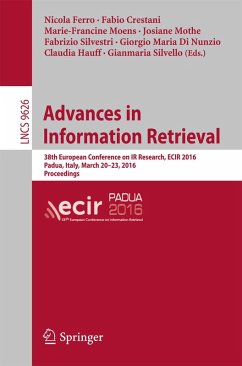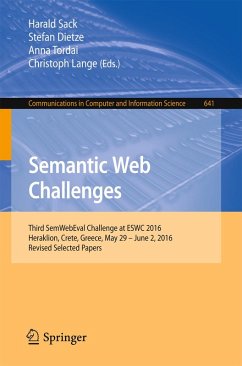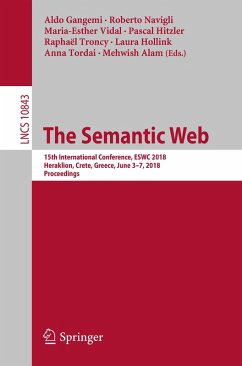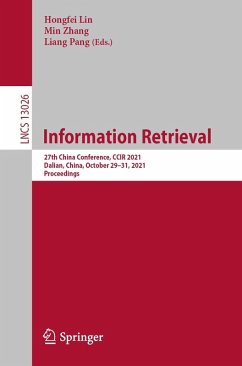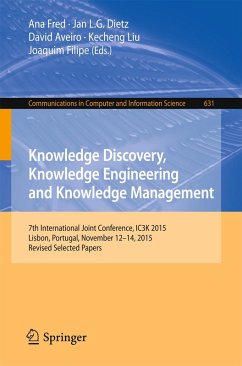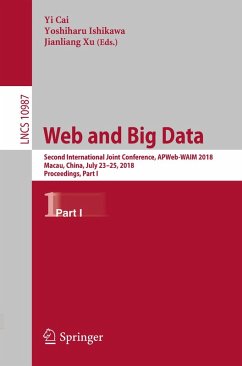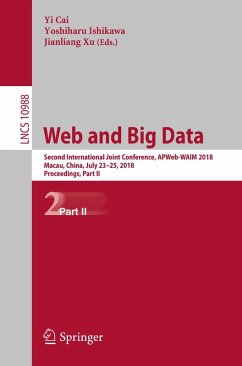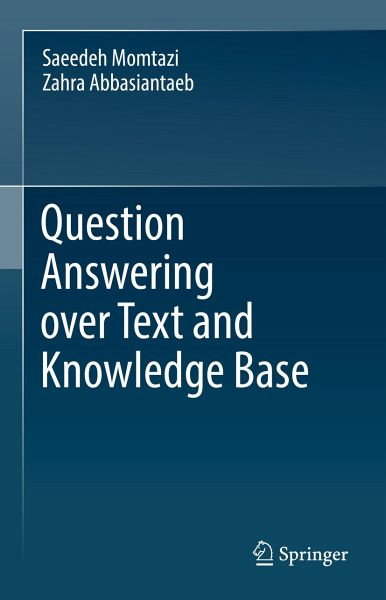
Question Answering over Text and Knowledge Base (eBook, PDF)
Versandkostenfrei!
Sofort per Download lieferbar
120,95 €
inkl. MwSt.
Weitere Ausgaben:

PAYBACK Punkte
60 °P sammeln!
This book provides a coherent and complete overview of various Question Answering (QA) systems. It covers three main categories based on the source of the data that can be unstructured text (TextQA), structured knowledge graphs (KBQA), and the combination of both. Developing a QA system usually requires using a combination of various important techniques, including natural language processing, information retrieval and extraction, knowledge graph processing, and machine learning.After a general introduction and an overview of the book in Chapter 1, the history of QA systems and the architectur...
This book provides a coherent and complete overview of various Question Answering (QA) systems. It covers three main categories based on the source of the data that can be unstructured text (TextQA), structured knowledge graphs (KBQA), and the combination of both. Developing a QA system usually requires using a combination of various important techniques, including natural language processing, information retrieval and extraction, knowledge graph processing, and machine learning.
After a general introduction and an overview of the book in Chapter 1, the history of QA systems and the architecture of different QA approaches are explained in Chapter 2. It starts with early close domain QA systems and reviews different generations of QA up to state-of-the-art hybrid models. Next, Chapter 3 is devoted to explaining the datasets and the metrics used for evaluating TextQA and KBQA. Chapter 4 introduces the neural and deep learning models used in QA systems. This chapter includes the required knowledge of deep learning and neural text representation models for comprehending the QA models over text and QA models over knowledge base explained in Chapters 5 and 6, respectively. In some of the KBQA models the textual data is also used as another source besides the knowledge base; these hybrid models are studied in Chapter 7. In Chapter 8, a detailed explanation of some well-known real applications of the QA systems is provided. Eventually, open issues and future work on QA are discussed in Chapter 9.
This book delivers a comprehensive overview on QA over text, QA over knowledge base, and hybrid QA systems which can be used by researchers starting in this field. It will help its readers to follow the state-of-the-art research in the area by providing essential and basic knowledge.
After a general introduction and an overview of the book in Chapter 1, the history of QA systems and the architecture of different QA approaches are explained in Chapter 2. It starts with early close domain QA systems and reviews different generations of QA up to state-of-the-art hybrid models. Next, Chapter 3 is devoted to explaining the datasets and the metrics used for evaluating TextQA and KBQA. Chapter 4 introduces the neural and deep learning models used in QA systems. This chapter includes the required knowledge of deep learning and neural text representation models for comprehending the QA models over text and QA models over knowledge base explained in Chapters 5 and 6, respectively. In some of the KBQA models the textual data is also used as another source besides the knowledge base; these hybrid models are studied in Chapter 7. In Chapter 8, a detailed explanation of some well-known real applications of the QA systems is provided. Eventually, open issues and future work on QA are discussed in Chapter 9.
This book delivers a comprehensive overview on QA over text, QA over knowledge base, and hybrid QA systems which can be used by researchers starting in this field. It will help its readers to follow the state-of-the-art research in the area by providing essential and basic knowledge.
Dieser Download kann aus rechtlichen Gründen nur mit Rechnungsadresse in A, B, BG, CY, CZ, D, DK, EW, E, FIN, F, GR, HR, H, IRL, I, LT, L, LR, M, NL, PL, P, R, S, SLO, SK ausgeliefert werden.




